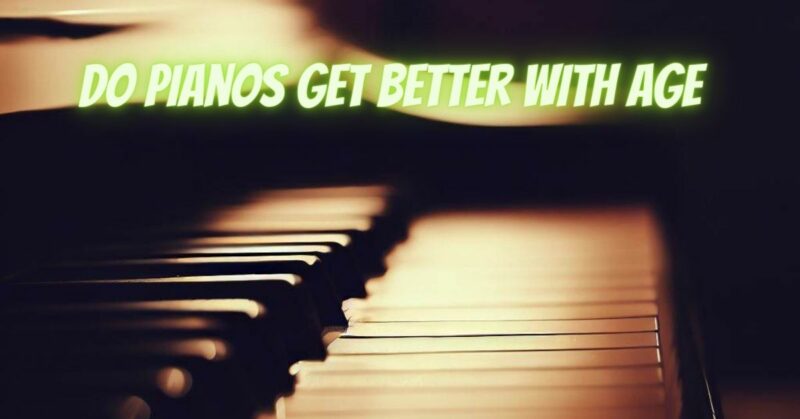Pianos, with their rich history and enduring appeal, have the unique ability to age gracefully. As these musical instruments mature, they undergo changes in tonal character and develop a distinct charm that captivates musicians and collectors alike. In this article, we will explore whether the quality of pianos improves as they age, shedding light on the transformative journey that vintage instruments embark upon over time.
The Aging Process of Pianos
- Maturation of Wood: One of the key elements contributing to the aging process of pianos is the maturation of wood. As a piano ages, the wood used in its construction undergoes a natural seasoning process. The soundboard, the bridge, and other wooden components gradually stabilize, leading to improved resonance and tonal qualities.
- Tonal Development: The tonal character of a piano is greatly influenced by the aging process. Over time, the sound produced by the instrument matures and becomes more nuanced, offering a rich and warm timbre that is often sought after by musicians and enthusiasts.
- String Settling: The strings of a piano undergo settling and stretching over time. As they adapt to the tension of the instrument, they produce a more stable and balanced sound, contributing to the improved quality of the piano’s tone.
- Action and Regulation: The piano’s action, which includes the hammers and other moving parts, can undergo wear and tear over the years. However, with proper maintenance and regulation, vintage pianos can often achieve smoother and more responsive action, enhancing playability and expressiveness.
- Artistry of Craftsmanship: Vintage pianos often showcase a level of craftsmanship and attention to detail that is characteristic of a bygone era. Skilled artisans meticulously built these instruments with traditional methods and materials, contributing to the instrument’s overall quality and durability.
The Subjective Nature of Piano Aging
While many pianists and collectors appreciate the unique qualities of aged pianos, the idea of “improvement” is subjective. Some musicians prefer the matured tonal character and vintage charm of older pianos, while others may prefer the more precise and uniform sound of newer instruments. Additionally, the level of care, maintenance, and restoration that a piano receives over the years greatly influences its quality as it ages.
Preserving and Restoring Vintage Pianos
To ensure that older pianos maintain and even enhance their quality over time, regular maintenance and careful restoration are essential. Restoring worn parts, regulating the action, and replacing strings when needed can help revive the instrument’s original brilliance and playability.
The aging process of pianos is a complex and transformative journey that can lead to an enhancement in tonal quality and the development of a unique character. The maturation of wood, settling of strings, and evolution of the piano’s action all contribute to the instrument’s aging process. While the quality of pianos can indeed improve as they age, the concept of “improvement” is subjective and depends on individual preferences and perspectives. For those who appreciate the rich history and matured tonal qualities of vintage instruments, properly maintained and restored pianos can offer a timeless musical experience that continues to captivate generations of musicians and enthusiasts.


